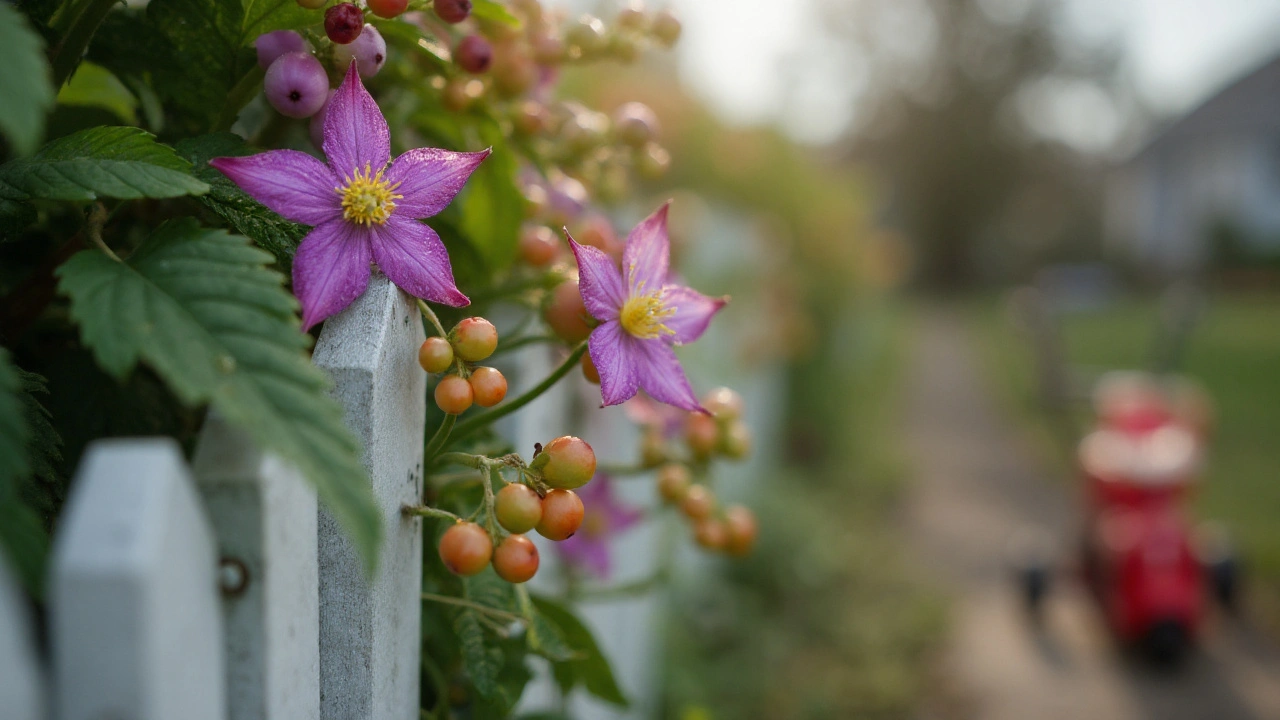Nightshade Toxicity: What Happens When You Eat the Wrong Plant?
Ever wondered why some garden veggies can turn deadly? Nightshade plants—think potatoes, tomatoes, eggplants, and the wild belladonna—contain natural chemicals that can make you sick if you eat too much of the wrong part. These chemicals are called alkaloids, and the most common culprits are solanine and atropine. Let’s break down what they do, how you’ll know you’ve been poisoned, and what to do about it.
Common Nightshade Plants and Their Toxic Parts
Most of us eat potatoes and tomatoes daily, but the green parts of these veggies hold the highest toxin levels. The sprouts, leaves, and any green skin on potatoes are packed with solanine. In tomatoes, the leaves and stems have the most alkaloids, while the fruit is pretty safe when ripe. Wild nightshades like belladonna, jimsonweed, and mandrake are far more dangerous—every part of the plant can cause trouble.
How to Spot Nightshade Poisoning
Symptoms show up anywhere from 30 minutes to a few hours after you eat the toxic part. Early signs include stomach cramps, nausea, and vomiting. If solanine is the main toxin, you might also get headache, dizziness, and a feeling of being really cold. Atropine poisoning looks a bit different—dry mouth, blurry vision, rapid heartbeat, and confusion are common. In severe cases, both toxins can cause hallucinations, seizures, or even respiratory failure. If you notice these signs after a meal, think about whether you might have consumed green potatoes or any wild nightshade.
First‑aid steps are simple but crucial. Stop eating the suspect food right away. Drink plenty of water to help flush the stomach. If vomiting starts, keep the person upright to avoid choking. For mild symptoms, a doctor’s call might be enough, but if you see trouble breathing, a fast heart rate, or loss of consciousness, call emergency services immediately.
Medical treatment usually means supportive care. Doctors may give activated charcoal to soak up more toxin in the gut, and they’ll monitor heart rhythm and breathing. In severe atropine poisoning, they might use an antidote called physostigmine, but that’s only given in a hospital. There’s no specific antidote for solanine, so the focus is on keeping the patient stable until the body clears the toxin.
Prevention is the best strategy. Store potatoes in a cool, dark place and discard any that have turned green or sprouted. When buying tomatoes, pick firm, fully colored fruit and avoid the leaves. If you love foraging, learn to identify wild nightshades—most look like ordinary weeds but can be deadly. When in doubt, leave it out.
Remember, nightshade toxicity is rare if you handle common kitchen varieties correctly. Knowing the signs and acting fast can keep a scary situation from becoming a tragedy. Stay aware, keep your pantry clean, and you’ll enjoy these tasty plants without worry.
